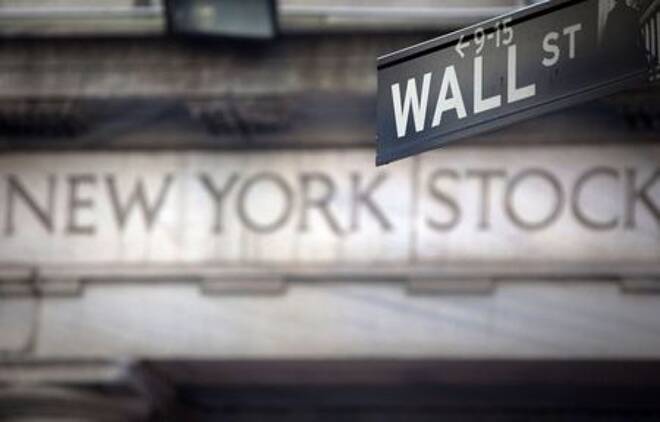Advertisement
Advertisement
World Shares Slide on Wall Street Sell-Off, China Worries
By:
NEW YORK (Reuters) - Markets dipped globally on Thursday as concerns about investments in China and a down day on Wall Street outweighed positive economic data in the United States.
In this article:
International investors that have been piling into China in recent years are now bracing for one of its great falls as the troubles of over-indebted property giant China Evergrande come to a head.
The developer’s woes have been snowballing since May. Dwindling resources set against 2 trillion yuan ($305 billion) of liabilities have wiped nearly 80% off its stock and bond prices, and an $80 million bond coupon payment now looms next week.
Hong Kong’s Hang Seng index dropped to its lowest level so far this year.
A report from the U.S. Commerce Department showed retail sales unexpectedly rose in August, indicating America’s economic recovery is strengthening on positive trends in consumer spending. The strong data lifted the dollar and pushed up treasury yields, and sent safe-haven gold down nearly 3%.
However, the U.S. labor market remains under pressure, with initial jobless claims rising by slightly more than expected last week.
Losses on Wall Street were dominated by technology and energy stocks as oil retreated from recent highs now that the threat to U.S. Gulf production from Hurricane Nicholas has receded.
The MSCI world equity index was last down by 0.29%, off an all-time high on Sept. 7. MSCI’s broadest index of Asia-Pacific shares outside Japan closed down 0.87%.
European equities bucked the trend, and Europe’s STOXX 600 closed up 0.44%.
The Dow Jones Industrial Average fell 91.51 points, or 0.26%, to 34,722.88, the S&P 500 lost 11.6 points, or 0.26%, to 4,469.1 and the Nasdaq Composite dropped 15.52 points, or 0.1%, to 15,146.01.
“(Retail spending) categories that were strongest in August were in Covid-beneficiary categories,” wrote Ellen Zentner, chief U.S. economist at Morgan Stanley.
“Now incorporating today’s retail sales release, we lift our real (personal consumer expenditures) tracking to +1.9% and GDP to +5.0%.”
Markets remain focused on next week’s Federal Reserve meeting for clues as to when the U.S. central bank will start to taper stimulus, especially after the flurry of U.S. economic data out this week.
On Tuesday, data from the U.S. Labor Department showed inflation cooling and having possibly peaked, but inflation in Britain was the highest in years, according to data on Wednesday.
“We have an unusual situation where the overall market is sideways to lower but with a risk-on trend underneath and that’s down to signs the Delta variant may be peaking in the U.S., which is driving people into reflation and recovery plays,” said Kiran Ganesh, head of cross assets at UBS Global Wealth Management.
U.S. crude recently fell 1.2% to $71.74 per barrel and Brent was at $74.69, down 1.02% on the day.
The dollar index rose 0.506%, with the euro down 0.51% to $1.1755.
Spot gold slid 2.1% to $1,755.75 per ounce, after hitting an over one-month low of $1,744.30. U.S. gold futures settled down 2.1% at $1,756.70.
Caught in gold’s slipstream, silver was last down 4.3% at $22.79.
The U.S. 10-year Treasury yield was 1.3327%, while core euro zone government bond yields were little changed.
(Reporting by Elizabeth Dilts Marshall; editing by David Evans and Steve Orlofsky)
About the Author
Reuterscontributor
Reuters, the news and media division of Thomson Reuters, is the world’s largest international multimedia news provider reaching more than one billion people every day. Reuters provides trusted business, financial, national, and international news to professionals via Thomson Reuters desktops, the world's media organizations, and directly to consumers at Reuters.com and via Reuters TV. Learn more about Thomson Reuters products:
Latest news and analysis
Advertisement
